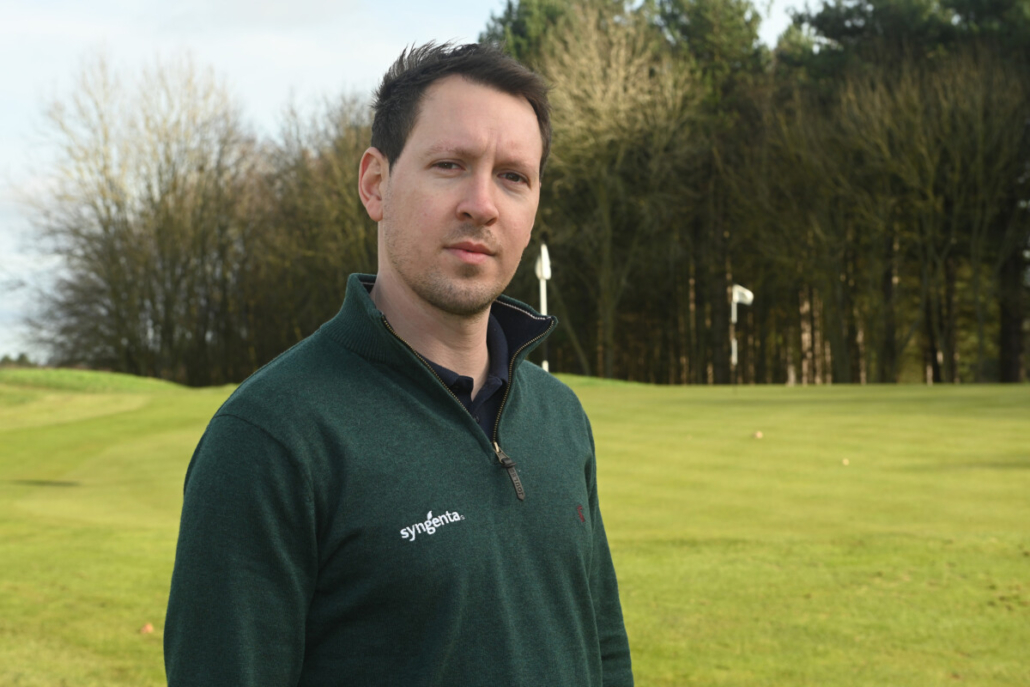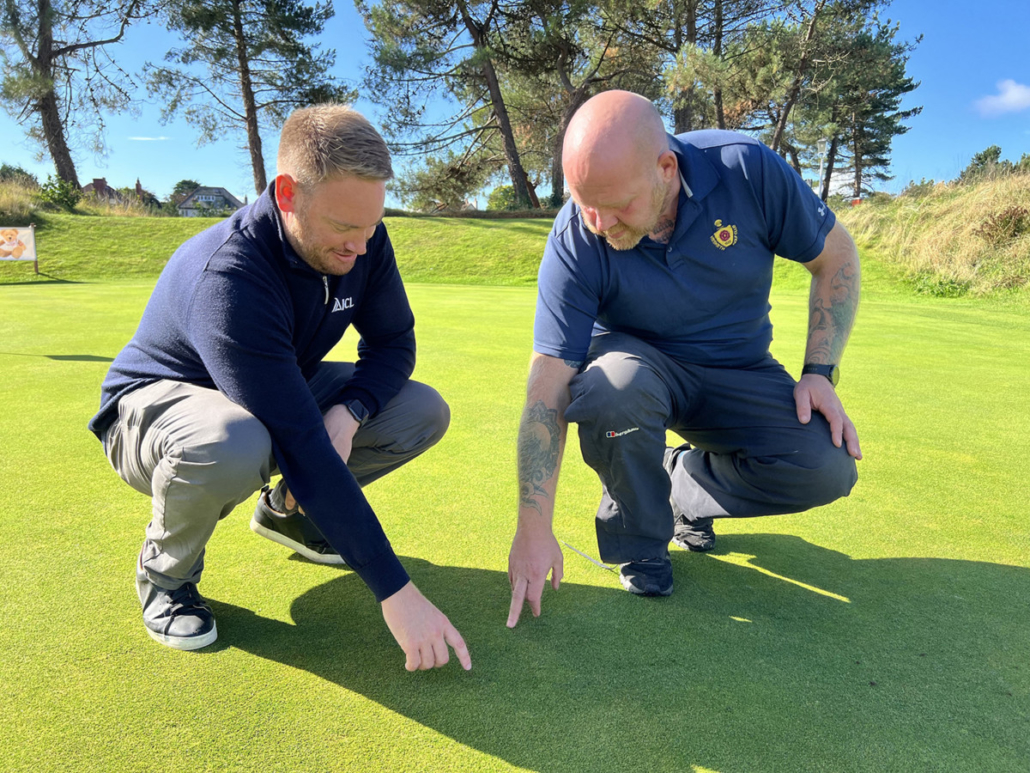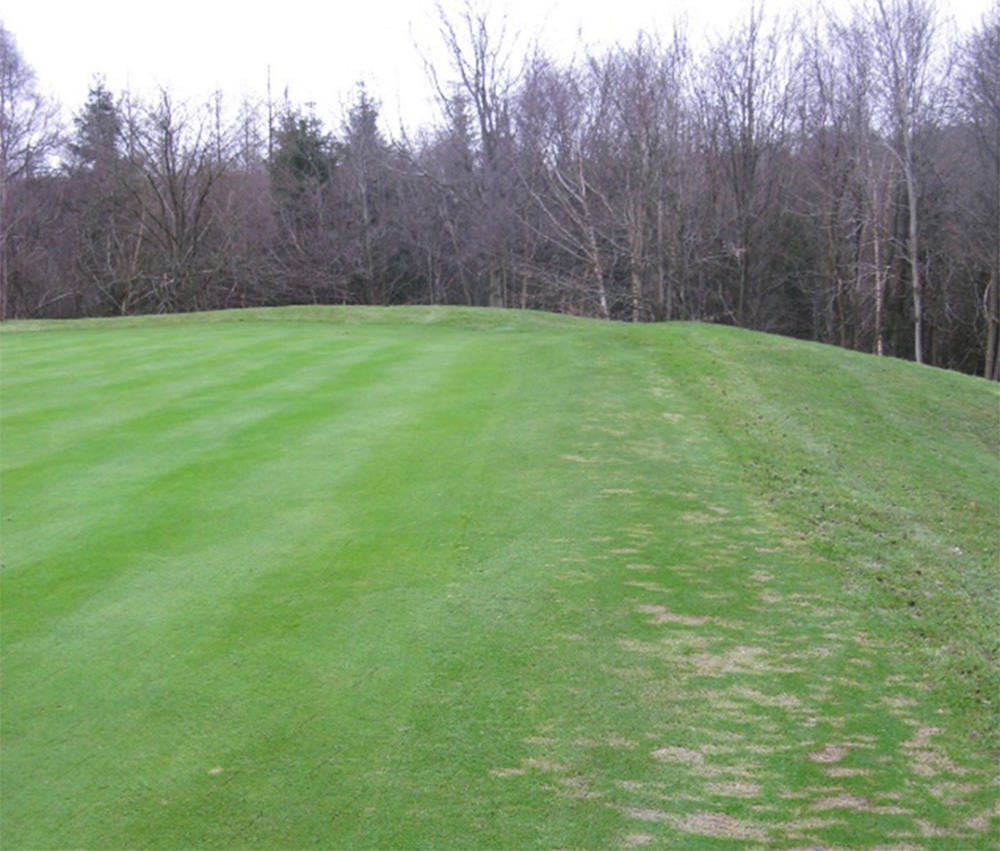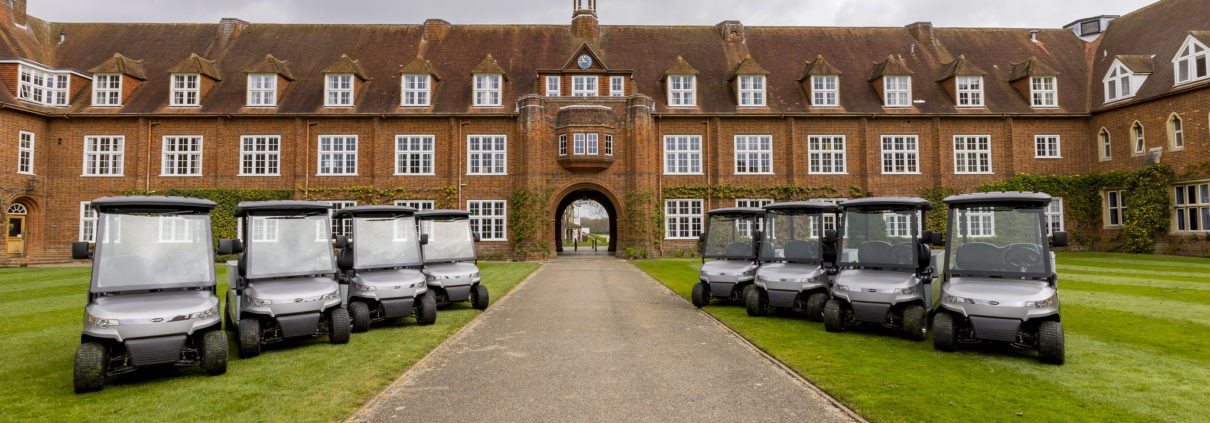JCB Golf and Country Club adopts a Sustainable approach
JCB Golf and Country Club adopts a Sustainable approach: The prestigious JCB Golf and Country Club in Rocester, Staffordshire is preparing to host the LIV Golf UK event next week, from 26-28 July 2024, replacing Centurion Golf Club in Hertfordshire as LIV’s UK LIV stop.
JCB has hosted events in the last two years on the Legends Tour, the DP World Tour’s veteran circuit. They now join an ever-growing list of UK golf courses in connection with LIV Golf and its financial investment in the professional game.

JCB Golf and Country Club adopts a Sustainable approach
The new Golf and Country Club opened less than five years ago in September 2019 and its testimony to Golf Course Manager Callum Wark and his 33-strong team that this is already a tournament standard course, having hosted events on the Legends Tour and the DP World Tours veteran circuit.
Previously from Loch Lomond Golf Club, Callum joined the original JCB Course Manager Euan Grant as a Senior Greenkeeper in June 2016, along with another 15 people who were all instrumental in the construction and grow-in of the course.
Kerr Hunter from Origin Amenity Solutions (OAS), which encompasses Symbio, Headland Amenity, Rigby Taylor, and Turfkeeper, has dealt with Callum since his inception at the club. Callum explains, “JBC wanted an organic and sustainable course. Euan had been working with Kerr from his former club and wanted the same results. With the active ingredients in fungicides being slowly removed from the market we wanted to proactively manage our greens moving forward and wanted to adopt a biological programme that required less input from us.”
In 2018 Euan became the General Manager and Callum was promoted to Golf Course Manager. He oversaw the official launch of the JCB Golf and Country Club, which was designed to reflect the bold, ambitious vision of Lord Bamford, Chairman of the iconic construction and agricultural equipment manufacturer JCB who wanted nothing less than the creation of a tour-ready contemporary masterpiece in course design.
Internationally renowned Robin Hiseman of European Gold Design was commissioned to create the stunning, contemporary layout in beautiful rural Staffordshire. The 7308-yard par 72 course has been designed to challenge elite golfers at full distance while allowing corporate golfers an enjoyable experience.
Callum continues, “I’m not against chemical inputs and where I need to, I do use them, but I find that by following a biological programme we only have a limited need for them. There is a high level of expectation that the course is in immaculate condition. We cannot afford for our members to see any disease or scarring so as a preventative we currently spray fungicide preventatively on the greens three times a year, but we are planning on reducing this to two times if possible. I see it as a safety net.”
The course is built on land close to the JCB headquarters in a mixture of established woodland and farmers’ fields. The site wasn’t the easiest to work on as there was a lot of clay and drainage was a challenge. Hiseman and his team moved over 400,000m3 of earth to produce the course.
OAS helped with the specification of a full assembly grow-in programme to enable the course to be built with a biological base. Some of the products used included Mycorrhizal Inoculant for greens and tees and Mycorrhizal SeedCoat for fairways and outfields
along with Caviar, calcium and magnesium.
Callum adds, “Today the soil is biologically active and the course is maintained with a vigorous organic and biological programme. We have four Compost Tea brewers and use Compost Teas every two weeks to feed the soil life and enhance the soil food web. We have a full greens programme to aid in the prevention of disease and improve plant health. We have fantastic results and the OAS biological products maintain the quality. If it isn’t broken, don’t fix it!”
Origin Amenity Solutions is the major supplier to the JCB Golf and Country Club for their putting greens. As well as a myriad of biological products such as ThatchEater, seaweed, CMS Shoot, DegrAid, Biotabs and Liquid Aeration, Callum has been using OAS Iron products for the fairways, ‘it is a high-quality product and one that works with our programme.”
‘Symbio ThatchEater is a core product for us. Our members demand high-performance surfaces. They must be firm and fast at all times. We still need to aerate regularly but ThatchEater is my go-to product.”
“The service and advice I receive from Kerr at OAS is invaluable. We have a planned programme, but we tweak it accordingly. A few years ago, I had a problem with plant parasitic Nematodes. Kerr recommended Root Repair. The problem was eradicated, and I’ve never had an issue since. The biological approach works for us, our greens are tournament-ready, and the club is looking forward to an exciting year ahead.”
For further information or to discuss a bespoke programme for your club contact the OAS team on 0800 138 7222 or email sales@originamenity.com
For the latest industry news visit turfmatters.co.uk/news
Get all of the big headlines, pictures, opinions and videos on stories that matter to you.
Follow us on Twitter and Instagram for fun, fresh and engaging content.
You can also find us on Facebook for more of your must-see news, features, videos and pictures from Turf Matters.



















